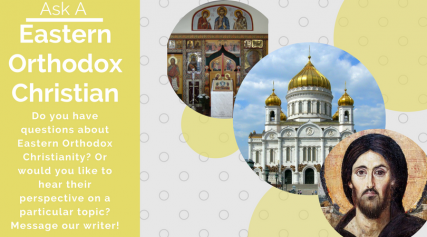What would you like to know about the Eastern Orthodox Christian faith? Submit your question.
“Was Jesus born with ancestral sin? And if so what is its definition?”
From the Bible, In the book of Genesis, God created Adam and Eve to live in the Garden of Eden. They lived in this paradise to experience God’s path to perfection. One of the challenges for Adam was to follow the commandment given to him from God stated in the following Scripture.
Gen 2: 16-17 And the Lord God commanded Adam, saying, “You may eat food from every tree in the garden: but from the tree of the knowledge of good and evil you may not eat; for in whatever day you eat from it, you shall die by death.”
One might ask why this tree of the knowledge of good and evil was placed in the garden. Some speculate that it could have been there because unconditional love allows for free will to choose between good and evil. Without a choice, there is no free will. Another possibility of the presence of this tree could have been that at some point, as man evolved to a higher level of God’s perfection, humanity could have eventually partaken of this sacred fruit. I do not think that this tree was there as a test of their obedience or love for their creator.
In the Eastern Orthodox Church, it is a teaching that no one is guilty of the original sin that Adam and Eve committed. However, humanity has inherited and bears the consequences of this act which produced physical death. This is why the fathers of the church refer to this event as ancestral sin, rather than original sin.
In the Orthodox tradition, the condition of man is not a fallen nature as western Christianity often professes: Fallen persons, but not fallen nature. No excuses we are responsible for our sins, actions, and reactions. The devil made me do it is a cop-out. The devil does not have any power over us unless we are willing to give it to him.
Did Christ who is without sin experience the consequences of Adam’s sin (physical death)? Did not His humanity die a physical death on the cross for us?








